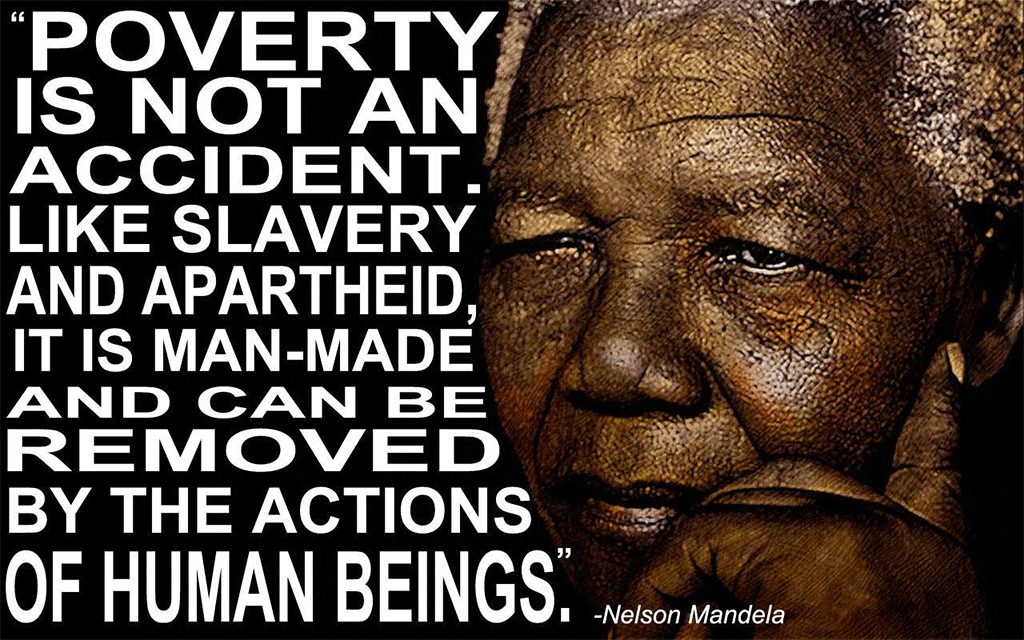The problem of how to end hunger in the U.S. may seem overwhelming. If one was to treat just the people in Allegheny County who rely on food stamps to a ticket to a Penguins game, they would fill the seats in Consol Energy Center – which holds 19,758 people – nearly eight and a half times.
Think of the faces in those huge crowds: young, old, white, black, newly poor, poor all their life, married, single. Some are charming, some are mean. In sum, just like any collection of Pennsylvanians, only with less money.
With a problem of this scale, charity alone – collecting some money and some food and passing it out – just won’t get the job done. So Just Harvest uses a different strategy to end hunger.
If I had to sum up the mission of Just Harvest in one sentence, I would tell you that we are the organization that works to make the government care more about the people in our community who are facing poverty and hunger.
Just Harvest advocates and lobbies at every level of government from Grant Street to Capitol Hill to strengthen the public safety net of programs like food stamps, school meals, welfare, and tax credits for low-income workers. It is too easy to forget that before food stamps existed, actual starvation occurred in the United States. The national school lunch program began after World War II, when military leaders told President Truman that too many draftees were undernourished and unfit for service.
Today, that anti-poverty safety net exists because we understand that too many in our country — 15% at any given time, and as many as 80% of Americans over the course of a lifetime – still face those same needs. But the safety net still has too many holes, so we strive to make government live up to its moral and constitutional obligations.
We serve low-income people directly by helping them overcome the roadblocks to these programs. We help people apply for food stamps, navigating the complex paperwork at the welfare department. Because nearly one in three applicants for food stamps in Pennsylvania gets turned down – and it’s hardly ever because they make too much money.
Rather, it’s the nurse’s aide who misses her required phone interview because she can’t take personal calls at work. It’s the elderly widow who doesn’t keep her paid utility and medical bills so the state miscalculates her eligibility. It’s the legal immigrant whose follow-up instructions come in English even though they clicked Spanish on the electronic application. So none of them are even in that imaginary over-flowing crowd at the Consol Center.
Just Harvest operates the area’s largest service to prepare low-income working people’s income tax returns at no charge. Because the Earned Income Tax Credit is now one of the biggest parts of this country’s safety net, and families in need shouldn’t leave $200, $300, $400 of it behind at a storefront that profits from their fear of doing their taxes wrong.
We see barriers and solve them: when the federal government changed food stamps from paper coupons to electronic debit cards several years ago, people in poverty could no longer use their food stamps to buy good fresh food at farmers markets. Debit cards aren’t much use at a cash-based market.
And those living in poor communities often have the fewest practical choices about buying decent food. So two years ago we launched Fresh Access, a program that now handles electronic food stamps transactions for nearly 100 local farmers and vendors at 15 farmers market locations around Allegheny County.
We educate the community about why hunger persists in a nation of enormous wealth.
We build power for low-income people so their own voices are heard by public officials – through voter registration and issue education, through advocacy training, and by creating opportunities for them to meet face-to-face with public officials.
 Just Harvest is a strictly non-partisan and non-religious organization. We are nonetheless, inspired by the best ideas of many political creeds and faith traditions.
Just Harvest is a strictly non-partisan and non-religious organization. We are nonetheless, inspired by the best ideas of many political creeds and faith traditions.
We are inspired by the words of Nelson Mandela, who said that “overcoming poverty is not a gesture of charity; it is an act of justice. It is the protection of a fundamental human right.”
And we are inspired by the words of the 41st Psalm, which tells us: “Blessed is the one who considers the poor.” Jewish scholars teach us that this specifically doesn’t say “blessed is the one that gives to the poor.” Because simply giving is not enough.
We are blessed only to the extent that we truly consider a person living in poverty – treat her or him as a friend and neighbor and respect their full dignity. In our modern day, this teaches us to stop crafting false divisions of the deserving and undeserving poor, to stop judging what our neighbors have in their shopping cart when they pay with a Welfare Department ACCESS card.
The task for us all, as people who don’t want hunger in our midst, is not merely to ease today’s human suffering of families without enough food; it is for us to change the rules that allow hunger to exist:
- We need to demand of our elected officials a strong and compassionate safety net.
- We need to demand economic policies that produce a full employment economy at living wages for all who can work, and stop praising as “job creators” businesses whose profits derive from paying workers so little that they receive food stamps and Medicaid.
- We need to stop subsidizing the production of non-nutritious “foods” manufactured in ways that waste resources, poison the environment, and help cause chronic disease. Instead we need to build a vibrant, healthful, and sustainable food system. Workers in the fields and in the rest of the food industry should be paid enough to eat the food they make for the rest of us.
Nearly 30 years ago, Just Harvest led the advocacy campaigns that brought school breakfast programs into the Pittsburgh Public Schools and to hungry students in West Mifflin, McKees Rocks, Woodland Hills, and other local districts. Now if we had instead used that money and resources for charity – buying toast and juice and oatmeal to feed breakfast to some kids – we would have done some good, but it would have lasted perhaps a month. Instead, by focusing on long-term social action, by focusing on government policy, by considering the poor instead of merely giving to them, our impact is at 30 years and counting.
The newspaper tells us that 47 million Americans – 162,000 right here in Allegheny County – receive food stamps to help keep food on the table. It tells us that on March 1, 2016, many of them will face new rules that say, basically, “hey, get a job” or lose your food stamps for 33 out of every 36 months.
The newspaper also tells us that several candidates for president of the United States support major cuts to the safety net for poor Americans and significant tax cuts for the wealthy.
It is not enough to merely want a change in this governing agenda, which has already helped to trample this country’s middle class and left millions more on the brink, or in the depths, of poverty and hunger.
It is not even enough to want justice, or prefer justice, or pray for justice, or seek justice. Or even to do justice.
Justice is not sitting on the supermarket shelf waiting to be picked up like the economy size of laundry detergent. Rather, it is something that we must pursue. It is a goal to chase after relentlessly. It is something that might escape if we don’t grasp it tightly.
The work of justice is pursuit. It is not easy or relaxing or spontaneous. It persists throughout the year. It considers the one who is poor, and treats her or him with neither disdain nor with pity but with the fundamental dignity with which we want to be treated by others.
And it moves us beyond mere charity, to work arm in arm with those in poverty to pursue and to demand real and lasting economic justice for all.





Eloquent, Ken — you’re the best!
Thanks, Nancy!
Great article, Ken. Can you run that in the Post Gazette?
Thanks, Liz! We hope to have something in the P-G soon…
Great post, Ken!
Thanks, Rachel!